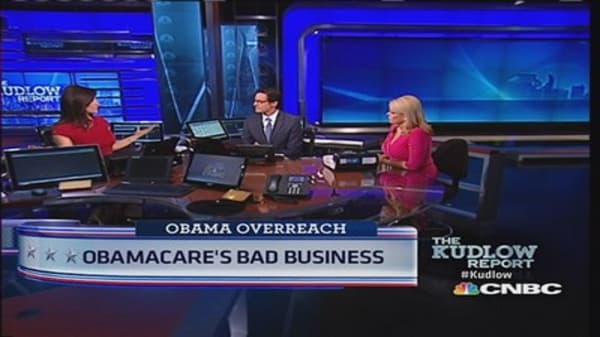Just imagine saying this to your boss: "Don't offer me health insurance benefits."
Those apparently bizarre words might actually end up being uttered next year because of a quirk in Obamacare that could financially penalize a number of workers and their families.
That quirk means that for some people, it will be more economical to have an employer not offer health insurance subsidies for them and their families—and for the entire family to then instead be able to buy insurance with government subsidies on the Obamacare state health exchanges.
"For a lot of people, that may be a better deal," said Jonathan Wu, co-founder of the price-comparison site ValuePenguin.com. "We're talking like thousands of dollars."
Wu noted that companies might be able to shed health-care costs as a result of the quirk, too.
"Our analysis suggests that employees and employers across the country should sit down and discuss the potential merits of discontinuing employer-sponsored plans," ValuePenguin.com said in a new report. "The company would end up saving money while the employee would benefit from thousands of dollars in tax subsidies—a clear win-win for both parties."
What Wu calls one of several "weird" unintended effects of the Affordable Care Act—effects that lead to some less-than-affordable outcomes—stems from a rule that was adopted by the Health and Human Services Department last winter and goes into effect in 2014.
(Read more: Obamacare delay draws fire)
Under the ACA, popularly known as Obamacare, a worker whose employer offers company-subsidized health insurance that costs the worker less than or equal to 9.5 percent of household income is considered to be receiving "affordable coverage."





